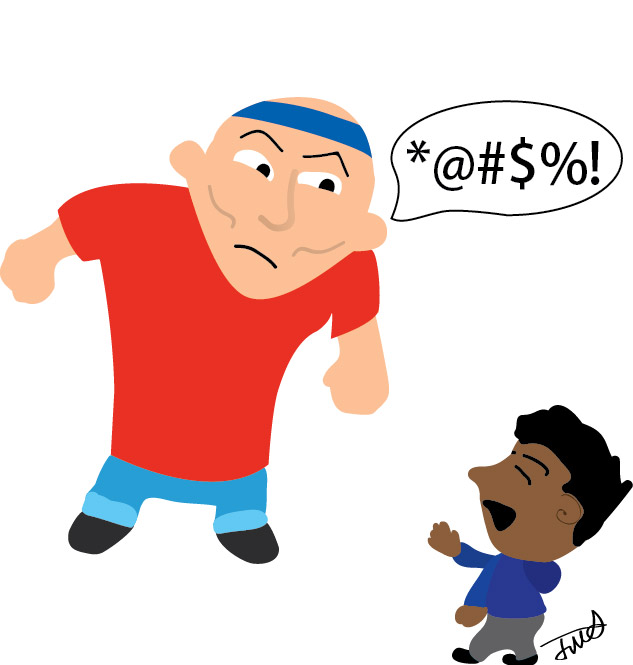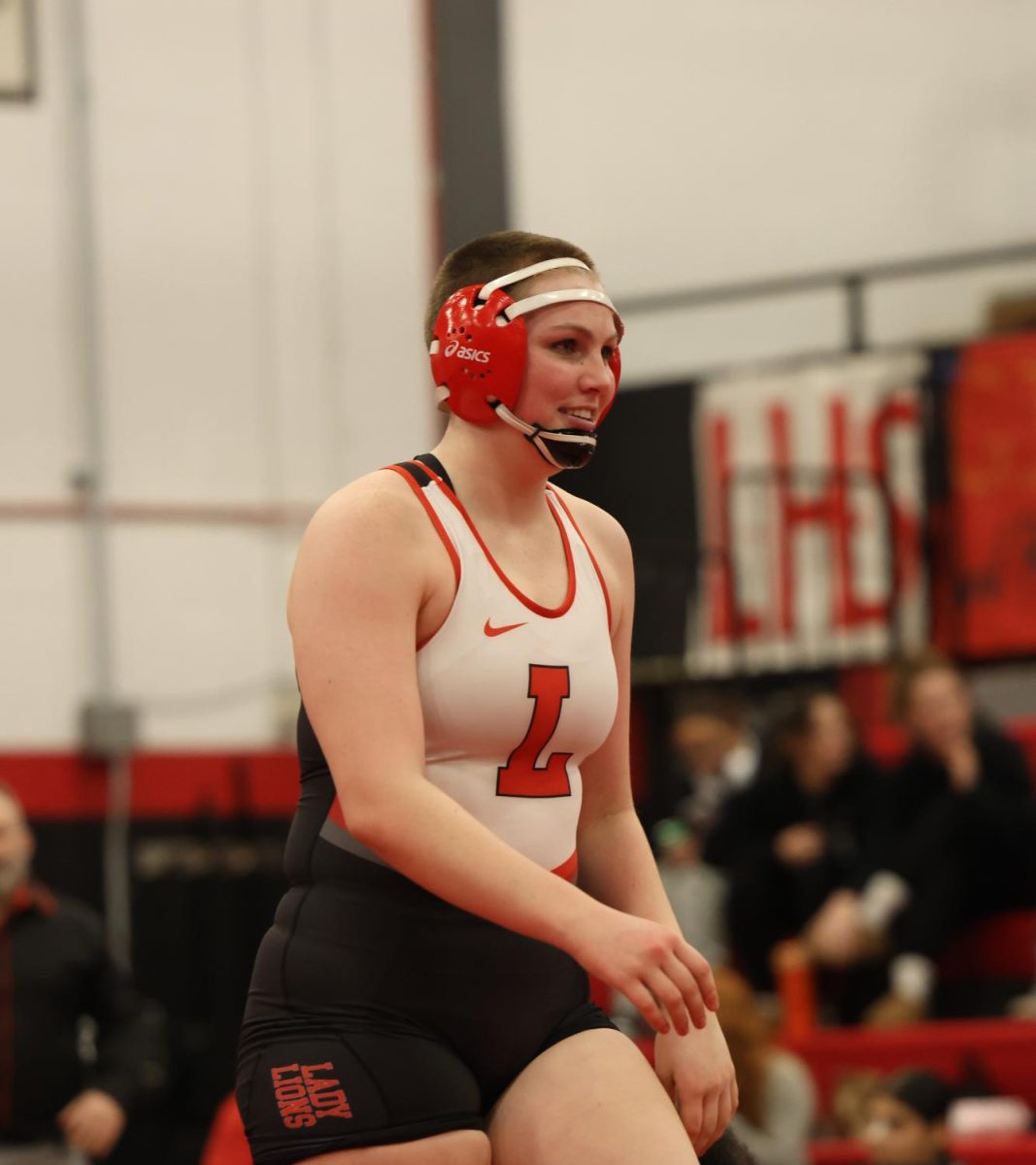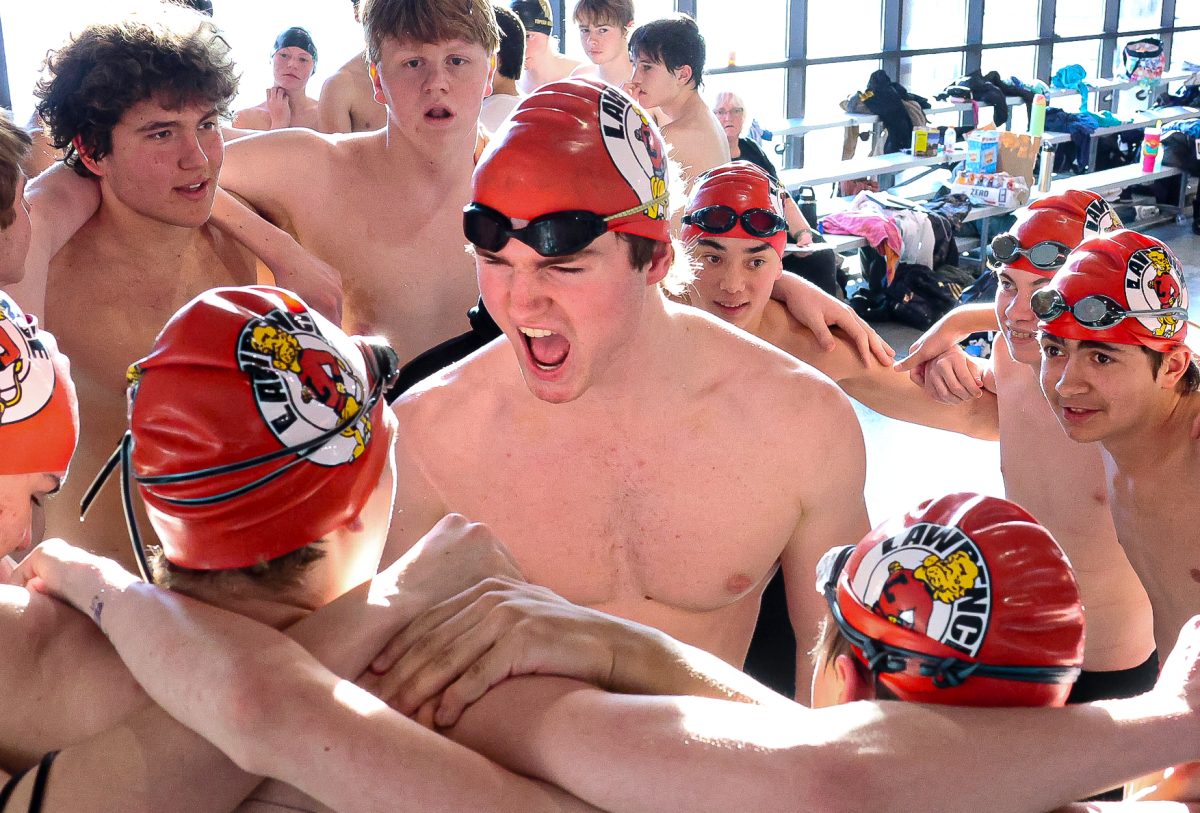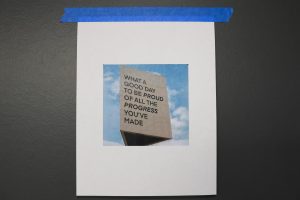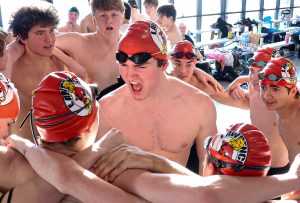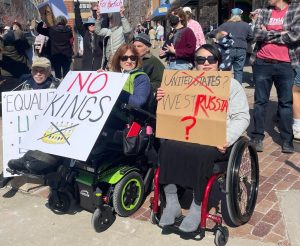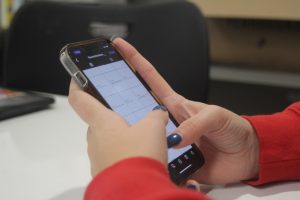Racial slurs poison the hallways, society
Vandalism brings to light an ugly reality present in student vernacular
October 15, 2014
It’s in music. It’s in movies and shows. It’s allowed to enter our ears, to pollute our minds and to desensitize us to violence against marginalized people. And most recently, this act of hate was burned into the history our football field.
I don’t know if it’s more sad that many people, myself included, weren’t surprised by the use of N-word, or that so many were. As if that word didn’t glide through our halls as acceptable vernacular daily.
Luckily enough, most people are aware that the N-word is a slur, but many groups of marginalized peoples aren’t as lucky. In many cases people use slurs and aren’t even aware that the word they are using is a slur, either because the word was acceptable previously or because they were never exposed to real life.
Slurs are not the same as swear words.
Slurs are used to humiliate and dehumanize the people they’re being used against. This creates the perfect climate violence to fester, making an environment unsafe for marginalized people.
As a trans and queer identified person of color in high school, it’s clear to me that some people don’t care about how unsafe their language makes an environment.
What many people do not realize is, slurs are among the few words that are capable of grouping a bunch of people together and declaring them lesser, dehumanizing that group of people and ultimately justifying their continued oppression.
But what about when marginalized people reclaim a slur for self-empowerment, like when black rappers use the N-word?
Assuming these rappers are even moderately educated on the history of slurs — specifically the N-word — there’s no way that they’re actually using them for empowerment.
The N-word is a derivative the word negro which is an adapted version of the spanish négro, meaning black. From its earliest use (which can be traced to 1786) it was “the term that carries with it all the obloquy and contempt and rejection which whites have inflicted on blacks” [cited in Gowers, 1965, Harold R. Isaacs]. This was most likely because English already had the word black and it was widely accepted at the time that all people of color, especially black people, were inferior.
Also, considering the N-word a slur from the mouth of anyone that isn’t black makes it impossible to be empowered by it.
A word that empowers a group of people is a word that brings a group of marginalized people together and says their lives are just as important as anyone else’s.
No slur can be redefined to do that.
No slur ever will.
And until our society realizes this, they’ll be in our music, our television and movies, in our homes and saddest of all, in Lawrence high.
Slurs poison and permeate our halls, creating an unsafe learning environment for students. The first thing promised to us, even before an education is a safe place to learn.
Because no higher learning can occur without safety.
Now, teachers and administrators typically do a good job of monitoring the language in the classroom and halls, but the responsibility to make school a safe place is not entirely theirs.
As students of LHS and members of modern society it’s our job to tell people when their actions are oppressive, because there won’t always be teachers to keep us safe.
Someday we’re going to have to acknowledge that our silence doesn’t combat oppression and speak out against the damage of decades of “justified” oppression.



